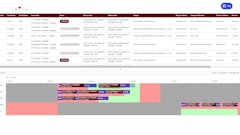
Don Durm, vice president of customer solutions at PLM Trailer Leasing, has been a true asset to the food logistics community. His efforts to raise awareness and knowledge about the Food Safety Modernization Act (FSMA,) and Sanitary Transport of Food (STF) regulation in particular, have helped many in the industry. He graciously shared the following guidelines with Food Logistics for this month’s special edition.
Sanitary Transportation of Food Act
The FSMA, enables the Food and Drug Administration (FDA) to focus more on preventing food safety problems rather than relying primarily on reacting to problems after they occur.
The FDA’s final STF rule was published April 6, 2016, and will become enforceable April 7, 2017, for most businesses, and is nearly 300 pages in length.
Industry Position
Within STF, the FDA has defined regulatory roles for the shipper, loader, carrier and receiver, but more directly, has identified the shipper as the key stakeholder charged with the responsibility of keeping food safe during transport by rail and/or motor carrier. Deliverable requirements will change by the role that refrigerated transport company plays within the distribution channel.
If you are a shipper, loader or carrier, one could accomplish all the written record requirements through a written internal SOP that would be maintained for a period of one year beyond their use. If your role is only the shipper, you would be responsible for delivering in writing all the requirements to keep food safe during transport to the carrier that would need to be maintained for one year beyond their last use.
Written Requirements
Trailer Spec & Design Compliance—Trailer design and construction should be made of materials that can be cleanable to maintain sanitary conditions to insure safe transport of food.
Sanitization Compliance—Develop sanitation procedures for the different load types and frequency for food vehicles to ensure all food-contact surfaces are safe to prevent cross-contamination during the loading, transportation and unloading phase.
Temperature Compliance—Develop any necessary pre-cooling requirements for the load that are specific by commodity types. Document any temperature control requirements during the transportation that may include any temperature records and data exchange requirements that the shipper and or receiver may require.
Carrier Training Compliance—Carriers are required to provide driver training for food safety education that would include safe food handling for the commodities transported. Required documentation is the name of the driver trained, the date of training and what the training included. The training is provided once upon employment, and the record must be maintained for one year beyond the last activity of the job function.
Regulatory Engagement
- Review to ensure current fleet trailer spec and design would satisfy regulatory shipper requirements as to construction of materials that would keep food safe during transport.
- Review current trailer sanitation protocols by type and frequency, and maintain in writing as required by rule.
- Review current procedures for pre-cool activity to insure safe food handling before loading. These must be in writing.
- Review current temperature profiles to ensure safe transport of food commodity and how that will be communicated to the carrier, and maintain the record of the protocol for one year.
- Train drivers by commodity types to ensure safe transport of temperature control products. Carrier must maintain this record for a period one year beyond their last activity in the job function.
- FDA has indicated that they will rely on industry best practices. Conduct a gap analysis on written protocols from the “International Refrigerated Transportation Association Best Practices Guide,” available free of charge at Global Cold Chain Alliance's website: www.gcca.org.




























